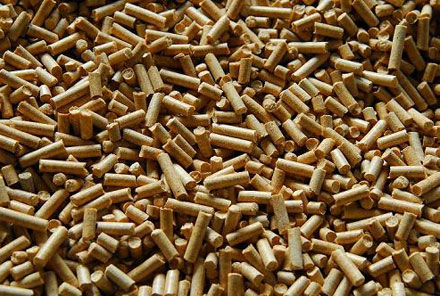
While the federal government ponders subsidies to “clean up” coal, one Australian firm plans to spend $130 million to export a cleaner coal solution to Japan, after being snubbed domestically. Source: The Australian
Global forest manager New Forests and its Tasmanian subsidiary Forico are in the final stages of planning for an industrial wood pellet factory at Long Reach in Tasmania’s north.
The plant would produce about 250,000 tonnes of compressed, cooked wood pellets to export to Japan, where coal power stations are subsidised to substitute the product for black coal, to reduce carbon emissions.
New Forests managing director Mark Rogers said the densified wood pellets would be made from forestry residues from Forico timber plantations in Tasmania certified by the Forest Stewardship Council.
“Replanting the tree, as is our intention in Tasmania, gives you an almost full carbon benefit; very strong decarbonisation,” Mr Rogers said. “The reason it’s going ahead in Japan is because the carbon component is being recognised in the feed-in tariff price. At the moment it’s 24 yen (27c) per kilowatt hour.
“If Australia had a similar signal, then there is no reason why some of our black coal power stations could not use these pellets.”
The company was rebuffed by the Clean Energy Finance Corporation, which said the densified pellets did not meet its guidelines for subsidy.
However, federal Environment and Energy Minister Josh Frydenberg recently flagged a new mandate for the CEFC, including more efficient and lower emissions coal power, as the nation looks to shore up reliable base load energy while fostering renewables.
Mr Rogers said densified wood pellets, from well managed plantations, could assist with maintaining baseload while storage of renewable energy was improved.
“The energy is stored in the pellets, which act as a battery,” he said. “Bioenergy could be one of those options, like gas, which is lower carbon — and bioenergy is sometimes zero carbon — but is still baseload.
“It does seem to be a sensible part of the solution, so it’ll be interesting to see how that plays out in policy. Japan has taken a strong stand and Australia has been flip-flopping for 10 years.”
Forico chief executive Bryan Hayes said coal power plants could substitute up to 50% of their feedstock with the black wood pellets without major changes to plant and equipment.
“The total (Japanese coal power) industry is looking to substitute about 10% but in any plant it could be 20% to 50%,” Mr Hayes said.
The pellets produced slightly less energy than coal.
“The black wood pellets can produce about 15 to 16 gigajoules per cubic metre and hard, thermal coal is about 21,” he said.
An engineering and technical report on the plant is due by the end of next month and a decision is expected midyear.





